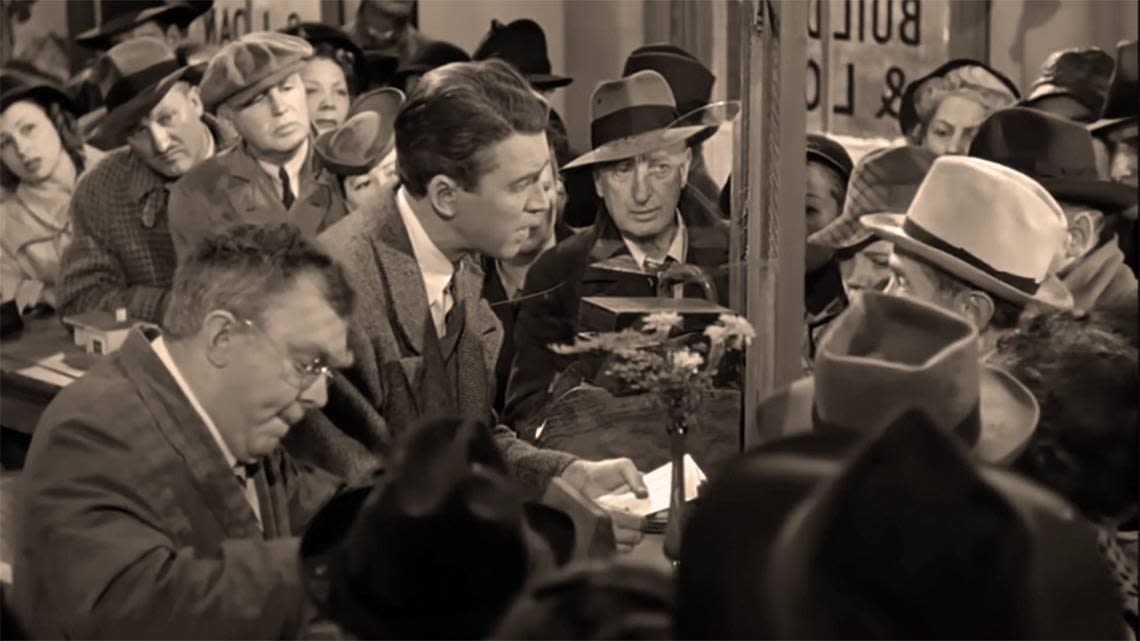Nervous at UMB Bank’s credit rating? Relax. Kansas City isn’t Silicon Valley | Opinion

It’s been a rough couple days for stockholders of UMB Financial Corporation. The biggest bank in the Kansas City area, commanding more than a quarter of the market, saw its stock price plunge Monday before recovering a bit to close just above $64 Tuesday.
UMB is among banks coming under extra scrutiny after the Federal Deposit Insurance Corporation announced the swift takeover of California’s Silicon Valley Bank Friday, and New York’s Signature Bank two days later.
In response, Moody’s Investors Service put UMB and five others under review for potential long-term credit downgrade Monday.
So, if your life savings are sitting on UMB’s ledgers, how worried should you be?
“Generally speaking, the banking system in the United States is healthy,” said University of Kansas School of Business associate professor Atanas Mihov via email. “It has enough capital and liquidity to withstand an economic downturn.
“With that said, the outlook for the U.S. financial sector as a whole is not great at the moment,” he added, echoing Moody’s warning about “extremely volatile funding conditions for some U.S. banks exposed to the risk of uninsured deposit outflows.”
The world of finance has grown extraordinarily complex through the years, obviously. But the irony of Silicon Valley Bank’s rapid collapse is that it was the victim of an old-fashioned “‘It’s a Wonderful Life’ bank run for the digital age,” in the words of Fast Company. Only in this movie, $2,000 in cash won’t tide customers over until the bank reopens.
Fast Company traces the scare to hardcore libertarian multibillionaire Peter Thiel’s venture capital firm Founders Fund, which got word last week that Silicon Valley Bank was in trouble. It suggested that its portfolio firms empty their accounts there. In the always-on world of Slack messages and smartphone group chats, the bad news spread fast. By Thursday, a full-fledged run was afoot, leading to regulators stepping in the next day.
So could the same happen at UMB?
“The immediate danger is low, especially if people do not panic,” said Mihov. “For most retail depositors with balances under $250,000, there is close to no danger of losing their money,” as the FDIC insures accounts up to that amount. “Without depositors panicking and running banks causing temporary dislocations and liquidity issues, the current ‘crisis’ is likely to be contained,” he said.
The century-plus-old UMB made more than $431 million in profits in 2022 — a 22.3% increase over the year before, The Star’s Kevin Hardy reported. Citing “uncertain times,” the bank’s website reassures customers that “UMB is well-positioned to weather the ups and downs in the industry.”
But perhaps the biggest contributor to that sense of security Americans can feel is the federal government, which used its immense resources to make Silicon Valley account holders whole even above the quarter-million guaranteed by the FDIC. That agency was founded in the middle of the Great Depression to instill faith in the banking system, though it and other New Deal rescue measures were bitterly denounced by critics at the time as “socialist” — sound familiar?
Big Tech startup institution not ‘woke’
While the right-wing alternative media machine is hilariously trying to convince its audience that Silicon Valley failed because it was too “woke” (not an insult to people who consider themselves so), the bank was actually a darling of Big Tech startup culture — which is overwhelmingly dominated by white men from backgrounds rich with economic opportunity.
Back in the real world, a big reason for Silicon Valley’s demise is the banking industry’s influence over our political leaders. Complaining he had so many friends “that have nice businesses and they can’t borrow money,” Donald Trump vowed to “do a number” on 2010’s Dodd-Frank Act, enacted in the wake of the 2008 financial crisis. The law enacted measures to ensure smaller banks such as Silicon Valley would stay solvent even during economic turmoil. In 2018, Trump and the Republican-controlled Congress rolled back the stricter oversight on all but 10 big banks in the nation.
Would Dodd-Frank alone have kept Silicon Valley, Signature and other financial institutions out of hot water today? That’s uncertain. Rising interest rates and Silicon Valley’s high proportion of uninsured investors likely played a role in the crunch.
But the panic and the government’s quick action reflect a larger truth about our ever-more-complicated society: The laws governments pass don’t exist in a bubble. As the old saying goes, regulations are written in blood — maybe not literally in banking, but certainly applicable when a toy that lacerates children’s scalps gets pulled from store shelves.
We’re all in favor of a regular review of the lawbooks for outdated or redundant legislation, and we’re certainly aware that overzealous bureaucrats can abuse their power by imposing needlessly onerous rules.
Just don’t be blind to why some wealthy captains of industry beat the drum of deregulation all day, all the time. Too many of them have demonstrated gross incompetence, or revealed that they’re all too willing to put profits over people. The government has to be an insurance policy for the rest of us.

